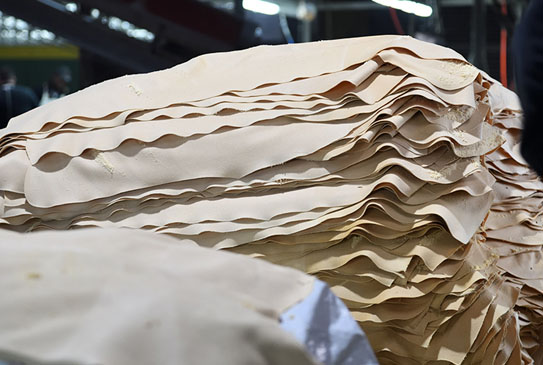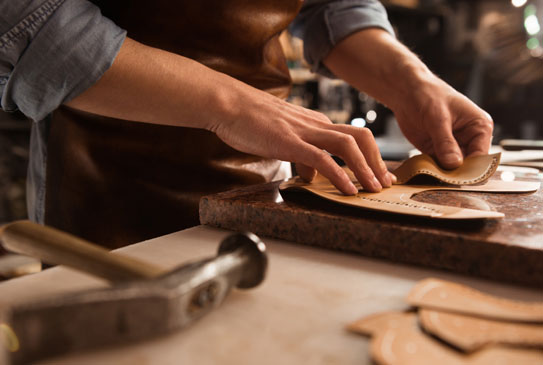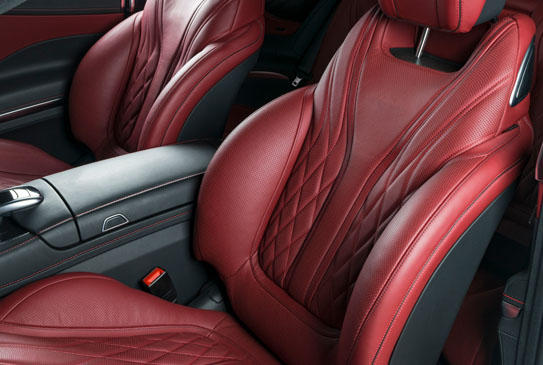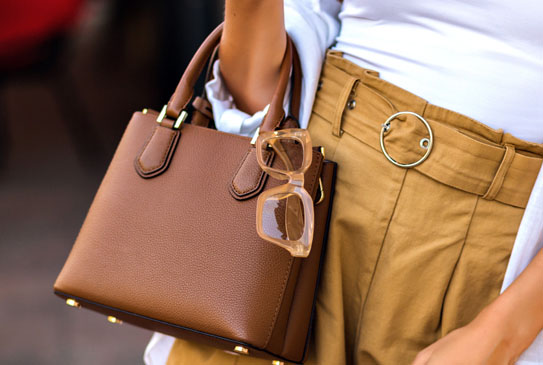Properly made and sourced leather is a truly sustainable material. Hides and skins are mostly a by-product that is dependent on the meat and dairy industry. Transformation into leather is the best use for those hides.
The leather industry is creating a product that is both natural and long lasting – leather is unique in its ability to combine beauty, comfort and practicality.
Given the extensive range of raw materials with different properties, and the many processes developed over time leather making is highly versatile and leather manufacturers can produce qualities with widely varied properties and looks.
Reduces Waste
Leather is a natural by-product
Modern leather manufacturing recycles over 270 million cow hides each year. These are a by-product of the food industry and without the ability of the leather industry to transform them into leather, over 7 million tonnes would go to landfill with huge environmental and biological impact. Leather makes a sustainable contribution to a society that needs to consume less, reuse more and a recycle everything.

Long Lasting
Good leather ages well and lasts
Well made leather lasts a long time and unlike most man-made, or synthetic materials it gets better with age, acquiring a depth of patina and wear pattern pattern that is individual to the user – much like a favourite pair of jeans.
As we mindfully look for ways to lower consumption, leather very much fits with the ethos of ‘buy less, buy better’. Investing in quality leather products, is investing for the future..

Repairable
Leather is easy to repair and maintain
The journey towards sustainability starts with products that can be repaired for longevity of use. Leather needs very little in the way of life-time maintenance and it easy to do at home, it does not draw heavily on resources for laundering and drying for example and we increasingly see the revival of artisan skills/offering repair services for treasured leather goods. Read the Restory article.

Recyclable
Leather and leather by-products can be recycled
Leather trimmings from the manufacturing process can be repurposed as stuffing, (into boxing punch bags for example) or combined with other materials to make composite products such as leatherboard, which is used for insoles and heel inserts in footwear.
Leather at end of life can be ground down to use in this way too. At the very end of its life leather will biodegrade, depending on type in between 10 & 50 years. We see leather trims being creatively incorporated into wall coverings, plus more and more companies are recycling the leather component from footwear and leathergoods into something new. Read the Peterson & Stoop article.

Versatile
Leather has many varied end uses
The skills of the leather makers take the same basic raw material and turn it into a many different ‘fabrics’ with different qualities and benefits. Leather can be engineered to be durable enough for furniture yet soft enough for comfort footwear. It will make the finest dress gloves or protective, abrasion resistant motorcycling gloves. Leather makes the most supple of jackets or the firmest of walking boots.

Comfortable
Leather has a natural comfort
Leather has a ‘breathability’ that more easily allows body temperature to be regulated, it will naturally absorb and hold moisture away from the skin until it can evaporate to the outside.
It will also mould to the wearer – whether it’s a glove, a shoe, leather jacket or wallet that’s been carried in a back pocket for years, leather conforms to its wearer for a very individual comfort and fit.

Beautiful
Leather is naturally beautiful
Leather has a natural beauty that, unlike many materials, improves with age. Although every hide or skin is different, leather manufacturers work to bring out its best qualities, whether that’s a completely aniline or ‘naked’ appearance to one that is expertly finished to combine durability and easy care. For more information on the different types of leather, check out our fact sheet, Leather Terminology.

Luxurious
The handle of leather adds luxury
Leather has long been a component of luxury goods, from covetable handbags to footwear and clothing. It has a distinctive touch and wear quality that cannot be replicated and for that reason it is often combined with hard-edged technology to provide a more luxurious and personal feel to an item that is otherwise anonymous. As with all natural materials it creates a user experience that is more emotional, less functional.
